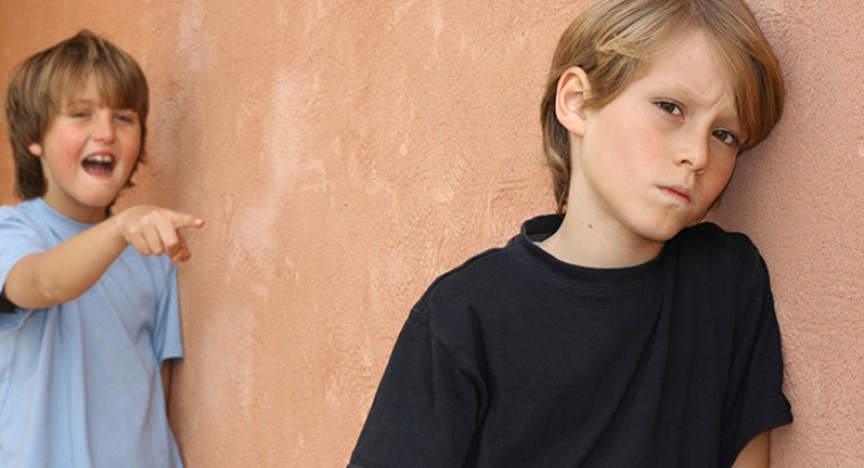
Most children will be guilty of teasing siblings, friends and other kids at some point but as they grow older they generally learn that their behaviour has an effect on people’s feelings, and the behaviour tends to stop. However there are some children that may continue this behaviour and become bullies.
Kids bully for lots of reasons—they may feel insecure, have trouble managing their anger, feel hurt or frustrated, be mimicking behaviour from others who have been unkind to them, or they may not have learned ways to work out conflict and understand differences.
While it may be difficult to learn that your child is bullying others, it’s important to address the problem as soon as you are aware of it. By stepping in early and teaching your child how to socialise and communicate with others, you will set them up well for their future.
What is bullying?
Bullying can be physical or psychological, and can involve pushing, saying nasty things, or generally making other children feel bad about themselves. It can happen in person, by text or on social media. Even if a child didn’t start the bullying but has joined in, or encouraged it to happen, that too is considered bullying.
What are the signs that suggest my child is bullying?
Typically parents will learn of their child’s bullying via a (sometimes) confronting conversation with the parent, teacher or principal or the child that is being bullied, but there are other tell-tale signs to look for at home:
- Are they acting aggressively with friends?
- Do they demonstrate a need to control and dominate others and situations?
- Do they show little sympathy towards others who are being bullied?
- Is your child talking about other kids in an aggressive way?
- Do they have things (money, toys, etc) that don’t belong to them?
What can I do to stop it?
Parents and carers must take bullying seriously and ensure your child is aware of the seriousness of their behaviour, both for their sake and the child who is being bullied. And do something about it sooner rather than later. It’s important when doing so, however, to remain calm and demonstrate the behaviour you would like your child to mirror when dealing with a problem and managing conflict.
- Establish rules at home that you expect them to also follow outside the home. Teach your child to be kind and respectful of others.
- Make your child aware that there will be consequences at home, at school and in the community if they continue to bully. For example, if your child is using social media to bully, take away their WiFi access and/or device for a period of time.
- Talk with your child about their social life and ask if there is anything causing them to behave in the way they are.
- Talk to the school (or where the bullying is happening) and speak with other parents, teachers, guidance officers and the school principal. Work together with them to ensure you take the same approach at home. Communicate regularly with them to see how he/she is behaving.
- Encourage good behaviour by acknowledging that your children are being good, but watch the words you use. Congratulating your child for standing up for themselves may encourage them to keep bullying.
- Monitor their use of internet and mobile phones to ensure they are using them appropriately and respectfully.
Finally, listen and look for signs that your child might be being bullied themselves. Remember, some children bully because they have been bullied, too.
Where can I get help?
- Your child’s school – teacher, guidance counsellor, principal
- Your GP or other health professional
- Kids helpline Phone: 1800 55 1800
- Lifeline Phone: 13 11 14
- www.esafety.gov.au
- Child Family Community Australia
- National Centre Against Bullying
- https://bullyingnoway.gov.au/